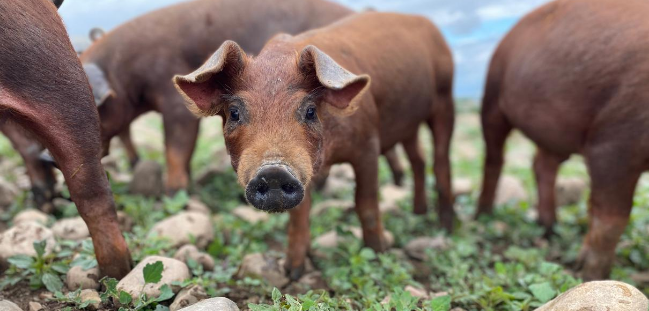We already talked in another blog post abouthow eliminating meat from the diet may not be the greenest alternative. But the way we consume it can make a difference in our contribution to a more ethical and environmentally friendly society. If you follow these simple tips you can make your devotion to meat compatible with your contribution to the sustainability of our planet.
1. Moderate your meat consumption
Meat is a key food of our diet and with a high nutritional value. It provides proteins, carbohydrates, vitamins, minerals, monounsaturated fats... And above all, it is a super versatile, tasty and easy food to cook in many and varied ways. However, its consumption should be moderate within a balanced diet. What is recommended is consume it about 3 or 4 times a week. Just like fish.
2. Choose ethically committed producers
Making better decisions when filling your shopping basket involves betting on producers that promote sustainable development, los healthy products, he animal welfare and the local development. Try to stay away from meat from extensive livestock farming focused on obtaining the maximum economic benefit from each head of livestock.
3. Choose meat from animals fed with local resources
Opt for meat animals fed with local resources, produced in the environment, greatly reduces the impact of your diet in the environment and also contributes to the development of territories and rural areas. Besides collaborates in reducing dependence on foreign production of certain types of cereals and legumes. If these animals are fed with organic certified products then you are collaborating in the fulfillment of the objectives of the 2030 Agenda for Sustainable Development. In our case, these two premises are met since nOur Duroc pigs are fed a 100% organic diet of cereal that we grow ourselves on our farm 'El Encinar'.
4. Banish ultra-processed meat from your diet
Sign up for the real food. Eliminate ultra-processed meat from your menu and choose quality meat, natural, without artificial ingredients or additives.
Ultra-processed products are not only very harmful to your health but also to the planet.
5. Choose antibiotic-free products
The use and abuse of antibiotics in livestock farms has created super resistant bacteria and represents a worrying threat to our health. The safest thing for you is to opt for meat from responsible producers, who promote animal welfare and who minimize the use of antibiotics or directly eliminate them, as in our case. In this sense ecological certification is a guarantee.
6. Reduce your food waste
Buy wisely. Plan and organize your refrigerator and your refrigerator well. Avoid generating waste or throwing away food. Practice efficient cooking and don't waste. The planet and your pocket will thank you.
7. Choose small producers and businesses
Support by purchasing small producers and in butcher shops, markets, grocery stores and local delicatessens Small in size thus ensuring you pay a fair price. In this way you will contribute to the circular economy, the development of rural areas, your city or town and the efficient use of resources.



